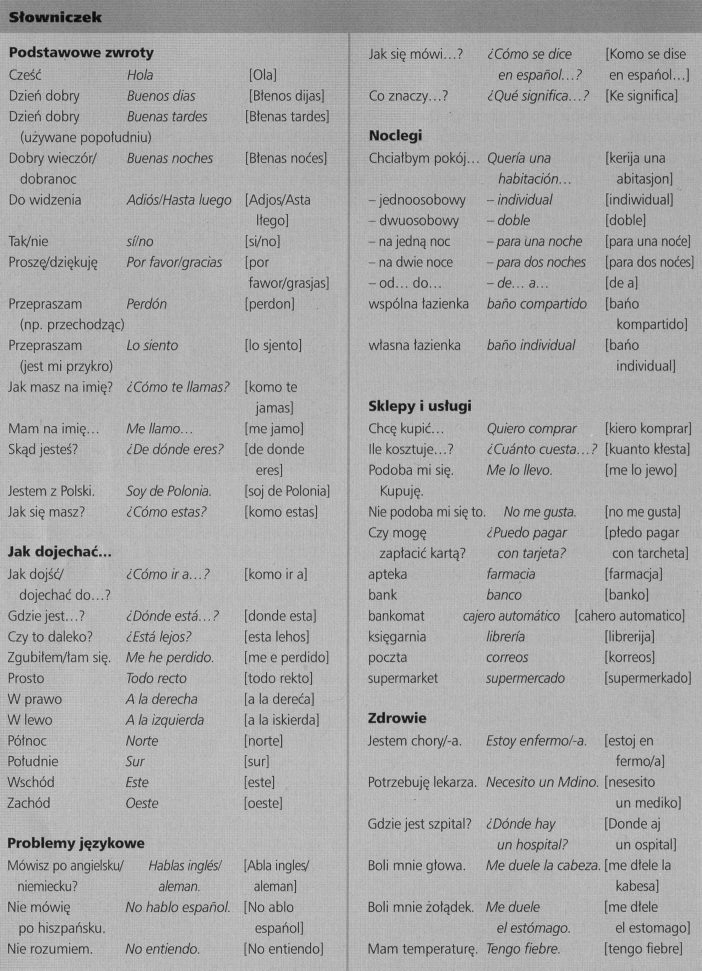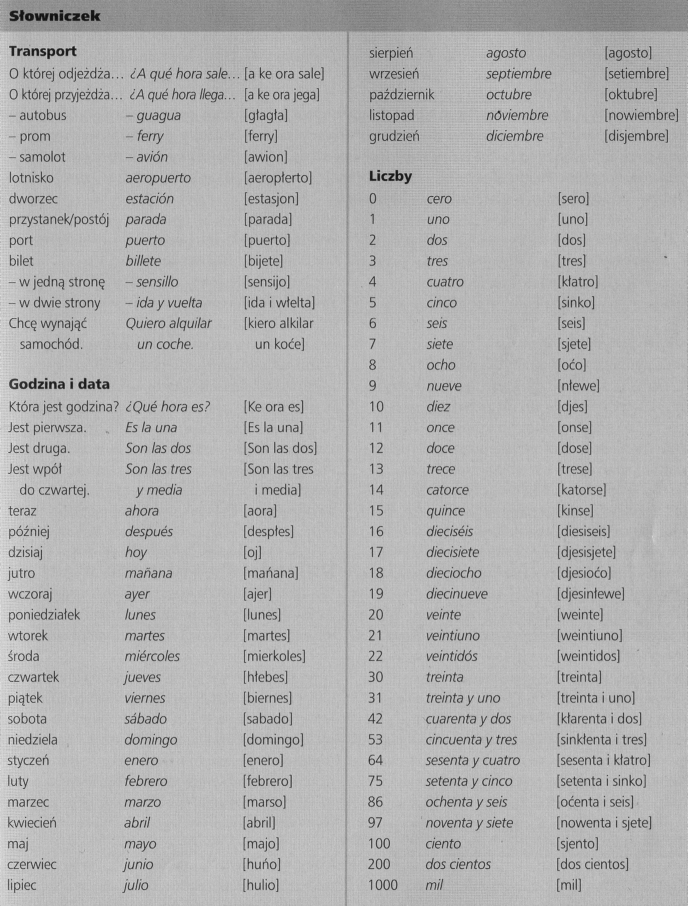Language – Canary Islands.
Official language of the Kingdom of Spain, and therefore also the Canary Islands, there is Spanish called Castilian (Castilian), to distinguish it from the other official languages (Basque, Catalan and Galician). According to the constitution, every Spaniard is obliged to use the Castilian language.
The Spanish spoken in the Canary Islands differs slightly from the model Spanish in terms of South American influences, especially visible in the accent and vocabulary. However, these are not differences, which will make it difficult for people who know at least a little Castilian to communicate.
Knowledge of foreign languages
As for the knowledge of foreign languages, The Canary Islands are a glorious exception on the Spanish map. Most of the people working in servicing tourists speak at least basic English and German, and sometimes even French. It also happens to hear a few words in Polish (most often "Bless you."!”).
Virtually all leaflets and brochures intended for tourists as well as menus in restaurants are in English, German, French and Italian. It is also planned to publish leaflets in Polish (now the official website of tourism in the Canary Islands has a Polish version).
Out of respect for the inhabitants, it is worth learning at least a few basic Spanish words – their use, even in a twisted form, always receives a very nice reception.
The rules of pronunciation
First of all, keep this in mind, that Spanish is really simple, and its pronunciation differs only in some cases from the Polish one. The real advantage of Poles is this, that they don't have to learn any new sounds. Letters are mostly pronounced like in Polish, with few exceptions:
that, co, cu is pronounced like "ka", "I", "Where"; caro - „karo”, comer – "Come", fault – "to catch".
crab, cue is pronounced "canine", "dress"; when – "Klando", kuesta - „kłesta”.
this, there, with similar to the English "th". It's a sound, who causes the most trouble, however, the Canary Islands have devised a solution to this problem
– islanders pronounce "s"; search for – "Cheese", thank you - "thank you", juice – „sumo”, ceweza – ,,servesa”.
ch is pronounced similarly to the Polish "ć"; chica – "squeal".
ga, go, gu is pronounced like "ga", „go”, „Prawns -„ prawns ”, friend – "friend", zgua – "Agła".
give, gi is pronounced like "he", „hi”; general – "General", Geneva – "Hinebra".
gue gui is pronounced "ge", "give"; guitar – "Guitar", war – "War".
h is not pronounced; hotel – "hotel".
j is pronounced like "h";Jamon – "Challenge".
ll is pronounced similarly to ,j”; I call – ,jamo ”.
ń is pronounced like the Polish "ń"; Spain – "Spain".
that, qui is pronounced "ke", „Ki”; cheese – "cottage cheese", I want – „Kiero”.
rr is pronounced like a strong double "rr".
v, w is pronounced like "b"; wine – "Building".
Basic Phrases Dictionary

